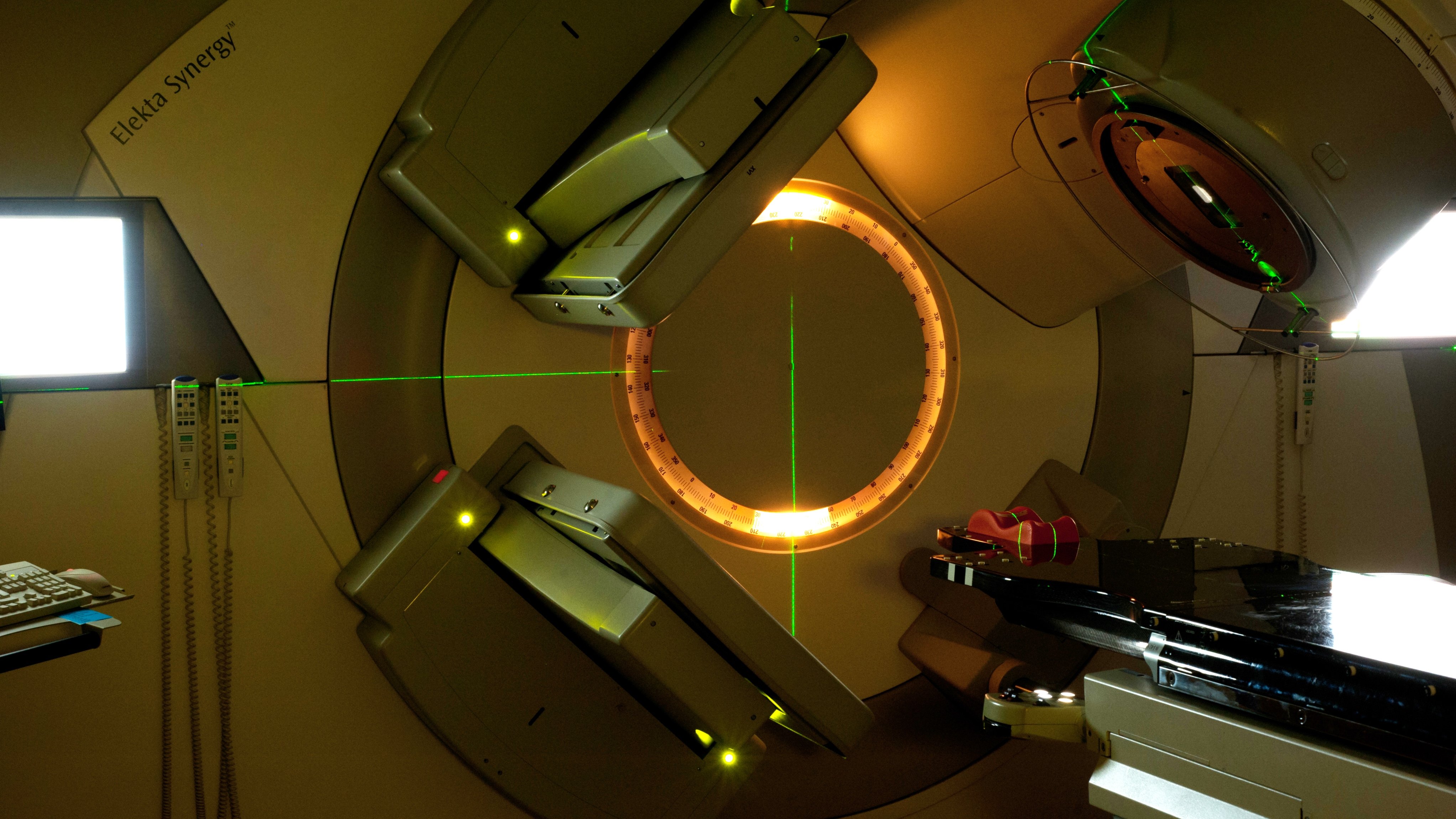
Cancer Research UK (CRUK) has awarded The Institute of Cancer Research, London, and The Royal Marsden NHS Foundation Trust a substantial £5.14 million through its radiation research network (RadNet) to support pioneering research in radiation therapy.
RadNet is an initiative from CRUK to support radiation-focused research across the UK. The funding, which will be distributed over the next five years, consolidates the position of The Institute of Cancer Research (ICR) as a leader in advancing radiotherapy, which is responsible for approximately 40 per cent of cancer cures.
By bringing together scientific and clinical teams from the ICR and The Royal Marsden, RadNet aims to drive groundbreaking research, generate innovative treatments and enhance patient outcomes.
Funding allocation
The grant represents the second round of funding from the RadNet programme and marks a significant advancement for the ICR’s radiation research initiatives. It places the ICR among the institutions that received the highest awards for this funding cycle –alongside the Francis Crick Institute and the Christie NHS Foundation Trust – out of the seven UK centres that are part of the RadNet programme.
The funding will support two main programmes. A little more than half of the funding will be focused on core infrastructure and support, providing essential resources to operate advanced equipment and manage samples across the ICR and The Royal Marsden. This will pump-prime future work by accelerating ongoing research, encouraging collaboration and allowing researchers and clinicians to benefit from shared resources.
The second tranche of funding will emphasise capacity-building for future leaders within the ICR and The Royal Marsden. The aims are to open doors into new areas of radiation oncology research, enable new grants for continued research and help allied health professionals start to lead their own research agendas.
Research objectives
The RadNet funding will enable the ICR and The Royal Marsden to focus on four critical research themes:
- Enhancing the power of radiation to destroy more cancer cells
- Investigating how to use the cells surrounding cancerous tumours to help destroy cancer cells
- Enhancing spatially fractionated radiotherapy to target radiation precisely, irradiating only small sections of the tumour, rather than broad areas
- Leveraging existing samples from clinical trials to validate and refine laboratory findings across the three themes listed above, ultimately aiming to ensure a seamless transition from research to clinical practice
By the end of the funding cycle, we hope to have made fundamental discoveries about how radiation interacts with cancer and the surrounding healthy cells. A better understanding of this biology will help with developing high-tech radiotherapy platforms that can carefully adjust the strength and focus of radiation to target cancer more precisely.
We will have better insights into the types of drugs that can be used in rationally designed strategies to sculpt or condition the tumour to make it more responsive to radiation. Central to all of this will be translating the research into clinical trials at The Royal Marsden and partner organisations, and to learn from those studies to complete the ‘bench to bedside and back again’ mantra so that the ICR can make treatment more effective.
Future directions
Professor Kevin Harrington, Head of the Division of Radiotherapy and Imaging at the ICR and Consultant Clinical Oncologist at The Royal Marsden, said:
“The ICR has been leading the way for radiation-related research in the UK – in terms of the fundamental discoveries, the translational opportunities and the clinical implementation of developments. Our research has led to many of the most pivotal radiation trials, improving therapeutic options over the last three decades.
“Along with the other main bodies within the UK that lead on this research, we can ensure that we steer the collective direction of research for the UK’s research community. Of course, we always do so with a view to making sure that patients both within the UK and globally have access to state-of-the-art treatments for their cancers. This funding from RadNet cements our role as continuing that legacy and will allow us to cure more patients while causing less damage.”
Dr Alison Tree, Consultant Clinical Oncologist at The Royal Marsden and Honorary Faculty in the Division of Radiotherapy and Imaging at the ICR, said:
“Historically, radiation research has been underfunded despite being integral to cancer treatment. With the support of RadNet, we can enhance our research efforts, ultimately improving patient outcomes and ensuring that radiation therapy receives the attention it deserves in the fight against cancer.
“There is a significant lack of knowledge among the general population about what radiation therapy is and how helpful it can be. Modern radiotherapy is a gentle and targeted treatment that is responsible for almost half of cures against cancer. The support from RadNet enables the ICR and The Royal Marsden to continue as leaders in this field, creating cutting-edge, patient-focused therapies that yield tangible results.”
A commitment to innovation
Dr Iain Foulkes, Executive Director of Research and Innovation at Cancer Research UK, said:
“Cancer Research UK, and its predecessors, have been at the forefront of radiation research for the past 120 years. Thanks to research, radiotherapy treatment is becoming kinder, more precise and less intensive across different cancers.
“This funding marks a new phase of our RadNet network, advancing research which will further accelerate improvements in radiotherapy treatment in the clinic. This funding will work alongside our investments in pioneering radiotherapy clinical trials to ensure more people can live longer, better lives, free from the fear of cancer.”